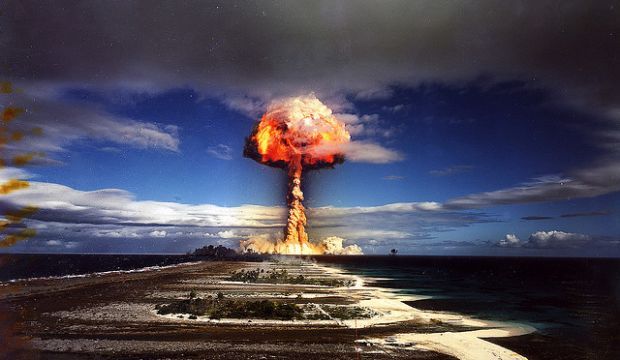
The new report by the University of Nebraska-Lincoln looked at data on the 19 types of weapons held in the arsenals of the US, Russia, China, the UK, and France, according to IFL Science.
It concludes that five A-bombs dropped on a city could trigger a nuclear drought. Furthermore, China could cause a nuclear drought with just one of its most powerful nuclear bombs (of which they have 20 stockpiled).
Read alsoU.N. envoy: U.S. prepared to use force on North Korea 'if we must' – mediaPrevious research has said the total destruction of a city around the size of Los Angeles by atomic warfare could throw up 5.5 million tons of ash and soot into the stratosphere for months, thereby blocking out some direct sunlight from reaching the Earth. In turn, this would dramatically reduce the temperature and rainfall around the world.
Of course, nuclear bombs have been dropped in their thousands in the past century alone and we are hardly in a nuclear autumn. However, the issue of a nuclear autumn or nuclear drought is tied to many factors, ranging from the nature of modern war and the potency of the bombs.
Nowadays, the world's nuclear arsenals are faced with a new scenario; it’s no longer the U.S. and Russia geared towards mutually assured destruction, it’s now about rogue erratic nuclear states, proxy wars, and much more powerful weapons, the report says.

